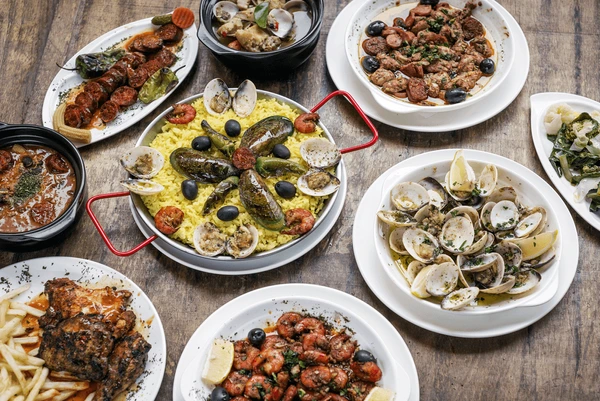
Travel is more than just checking places off the map. It's about immersing yourself in culture, connecting with locals, and letting your senses guide you. Of all the ways to experience a country, food often speaks the loudest; it tells stories, shares traditions, and brings people together around a table.
Portuguese cuisine is a blend of the Atlantic diet and Mediterranean traditions. Though the country is small in size, it's impressively diverse when it comes to food. Like many places, the availability of ingredients, shaped by Portugal's unique topography and geographical location, greatly influences regional dishes. From the olive-covered hills of Alentejo to the seafood-rich shores of Algarve, each area adds its own twist to the table.
If you're seeking a destination with unique culinary traditions, Portugal is the ideal choice. From centuries-old recipes to coastal street food, the variety is unmatched. The best way to taste it all is by going on luxury Portugal tours, turning every bite into a memorable moment.
To truly understand Portugal's rich food culture, let's explore some traditional dishes and treats that carry the country's history in every bite.
Portuguese cuisine is humble yet full of flavor. Codfish, or bacalhau, is considered the soul of Portuguese cuisine. Interestingly, cod isn't native to Portugal, but centuries ago, sailors began salting and preserving it during long maritime voyages. This tradition continued from the Age of Discoveries and became a staple of the Portuguese diet.
Today, bacalhau is prepared in hundreds of ways: baked, grilled, boiled, or in fritters. Dishes like bacalhau à brás or bacalhau com natas reflect the creativity that comes from necessity. Bacalhau is more than a meal; it's a tribute to the country's seafaring past and love for preserved flavors.
The famous pastel de nata, a creamy custard tart in flaky pastry, originated in the 18th century at the Jerónimos Monastery in Lisbon. Monks used egg whites for starching clothes, leaving behind many egg yolks, which led to the invention of sweet pastries like this one as a way to utilize the egg yolks.
Pastéis de nata became popular across Portugal, and today, they are enjoyed with coffee at almost every café. Their delicate taste and warm caramelized top make them a symbol of Portuguese baking tradition—simple, sweet, and unforgettable.
Sardines are deeply rooted in Portuguese culinary and cultural life. Grilled over charcoal, they are most famously served during the Santos Populares festivals, especially in Lisbon every June. This tradition dates back to celebrations honoring saints, especially Saint Anthony.
Eating grilled sardines on a paper plate with a piece of bread while walking through festive streets is a uniquely Portuguese experience. It represents the spirit of the people—joyful, communal, and proud of simple pleasures.
In Portugal, food is more than what's on your plate; it's a narrative of the country's geography, history, and traditions. Whether it's the legacy of monks in a custard tart, the echo of explorers in a cod dish, or the laughter of a sardine-filled street festival, every bite tells a story.
For those who crave authentic experiences and flavors that go beyond the usual, a luxury Portugal tour offers a chance to savor not just food but centuries of tradition and culture.